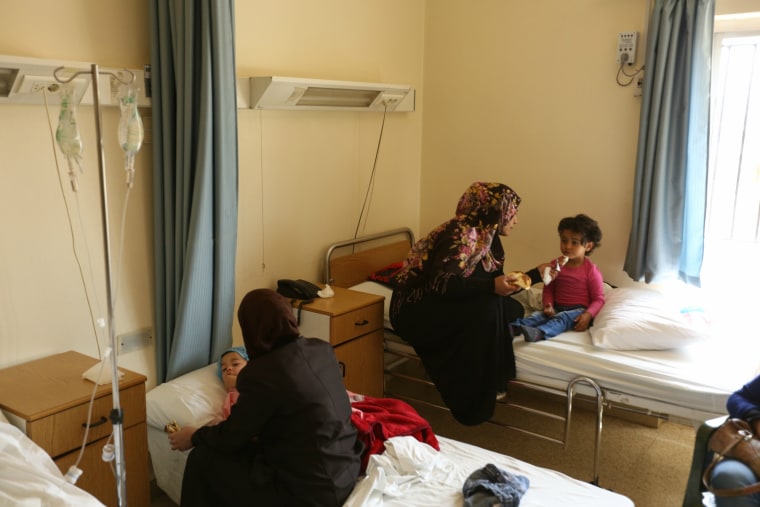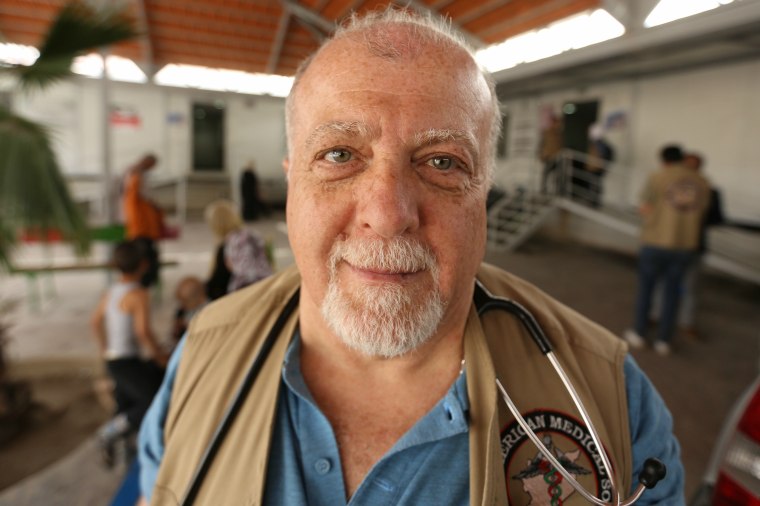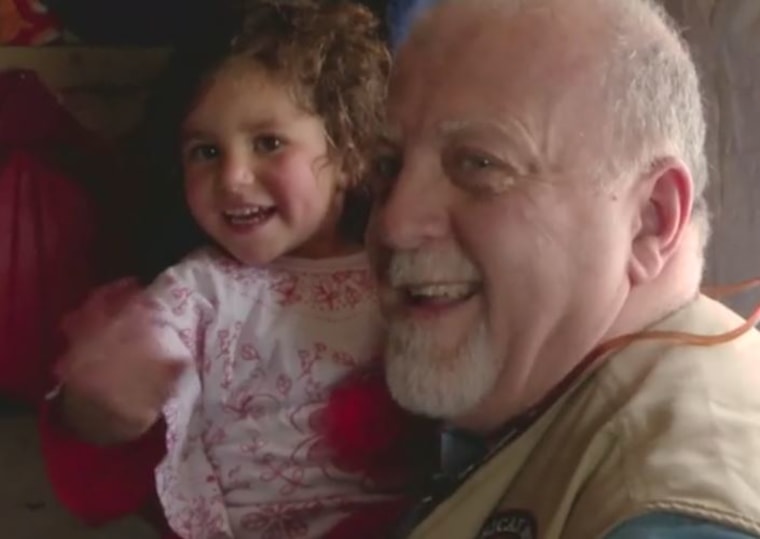BEKAA VALLEY, Lebanon — Dozens of children and adults huddle around the steps of a field clinic where they have been waiting since the early hours.
They are waiting to see one of 32 American doctors and nurses who are visiting as part of a medical mission led by the Syrian American Medical Society (SAMS) at this camp near the Syria border.
About 1.5 million refugees have fled war-torn Syria into tiny Lebanon, many of them living in camps that lack running water and are rife with danger — and disease.
Among those at the clinic is Zakaria Mahmoud, a 15-year-old from Homs who lives with his eight family members in a tent assembled with sheet metal and the white UNHCR tarps now synonymous with the Middle East refugee crisis.
He waits for hours with his mother, Azizah, hoping for treatment for an unbearable pain in his back and stomach.
“When they checked on me, they directly knew what I had,” he said a few days ago, emerging with a smile from a series of consultations and blood tests. “I feel that the American doctors [are] better than Arabian doctors … because they have more knowledge.”

p
Zakaria is one of over 1,600 patients seen during 700 SAMS consultations in Lebanon during the week. In total, the doctors perform over 220 surgeries ranging from tonsillectomies to pacemaker fittin
“There are a lot of communicable diseases — typhoid fever, skin diseases, scabies, a lot of infectious diseases that go on because of the unsanitary conditions,” said Mufaddal Hamadeh, 57, who runs a hematology-oncology practice in the south Chicago suburbs.
“I don’t think it can get any more desperate than this,” he said as he walks from tent to tent around the camp.
This is Hamadeh’s sixth trip to Lebanon as part of SAMS missions. This time he is leading a mix of enthusiastic hospital residents and seasoned surgeons.
As he tours the camp, stethoscope around his neck, a man suffering from pain in his upper lip approaches him for advice.

“You need to quit kissing your wife so much!” Hamadeh joked.
As he continues his rounds, a group of laughing children run circles around him.
“You come here, and you find [the children] smiling, and laughing. They’re all over you, because, basically, they have nothing else,” he said.
“These kids don’t have Nintendos, and iPads, and iPhones. Some of them don’t even have shoes.”
In spite his own work on behalf of the refugees, Hamadeh said there is much more to be done for those like Zakaria.
“The saddest part is the lack of hope,” he said. “That’s the common denominator when you talk to everybody, but the saddest part of all is when you ask a seven or eight year-old kid, ‘What do you want to be when you grow up?’ and the most common answer is ‘nothing.’ We have a lost generation.”

